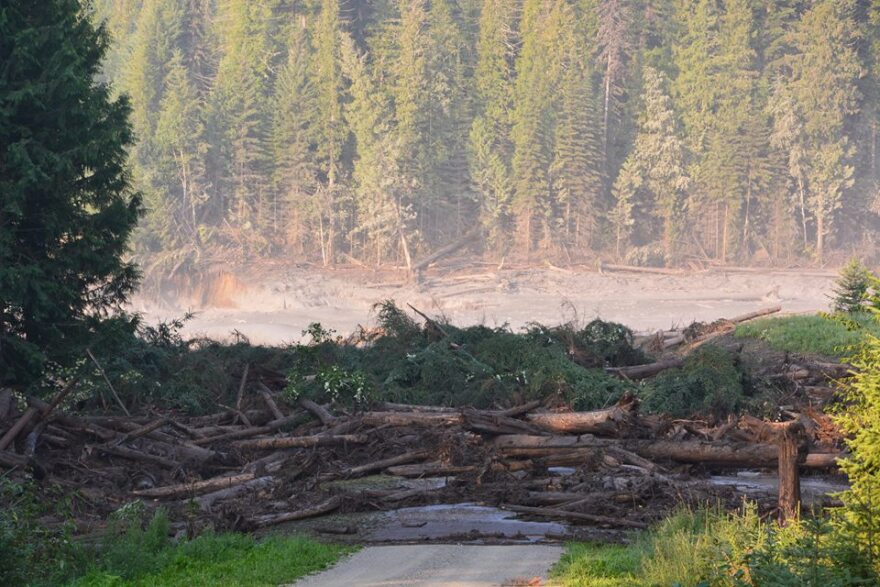A dam break at a central British Columbia mine could threaten salmon fisheries in the Pacific Northwest.
Mount Polley is an open-pit copper and gold mine roughly 400 miles north of Seattle. A dam holding back water and silt leftover from the mining process broke Monday, releasing enough material to fill more than 2,000 Olympic-sized swimming pools.

Government regulators have not yet determined its content, but documents show it could contain sulfur, arsenic and mercury. The mine’s owner, Imperial Metals, issued a statement that only said the material was not acidic. Emergency officials told residents not to drink or bathe in water from affected rivers and lakes.
The spill area is in the watershed of the Fraser River, which empties into the Pacific Ocean at Vancouver, B.C. The river supports a large sport and commercial fishery in Washington state.
Brian Lynch of the Petersburg, Alaska Vessel Owners Association says some of those fish also swim north.
“The United States has a harvest-sharing arrangement for Fraser sockeye and pink salmon through provisions of the Pacific Salmon Treaty. So any problem associated with salmon production on the Fraser will affect U.S. fishermen,” he said.
According to Imperial Metals’ website, the mine is closed and damage is being assessed. Provincial officials have ordered the corporation to stop water from flowing through the dam break. Imperial could face up to $1 million in fines.
Environmental groups in Canada and Alaska say Mount Polley’s dam is similar to those planned for a half-dozen mines in northwest B.C. They say a dam break there would pollute salmon-producing rivers that flow through Alaska. That could also affect U.S.-Canada Salmon Treaty allocations, including for waters off Washington state.






